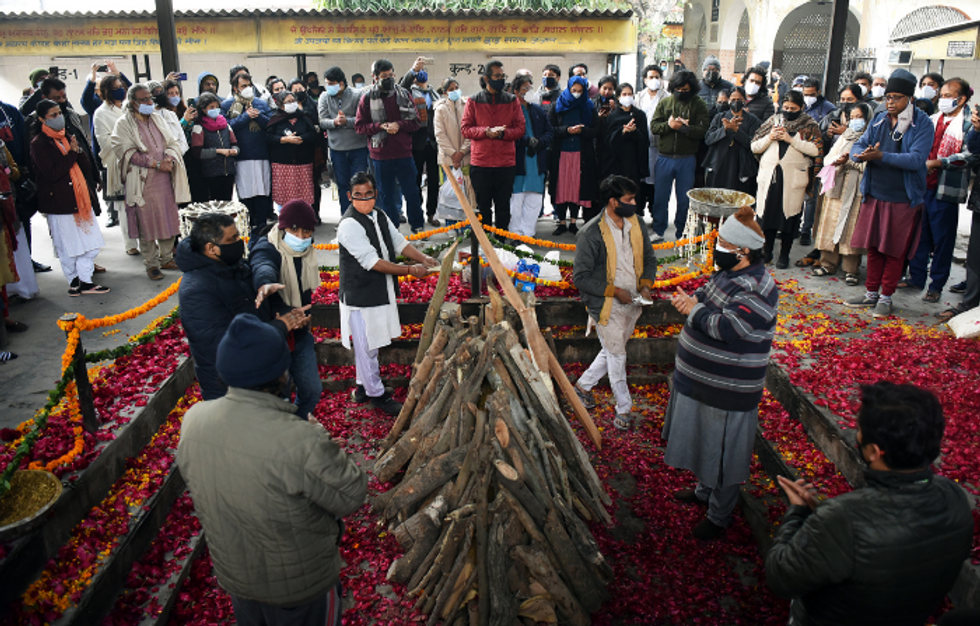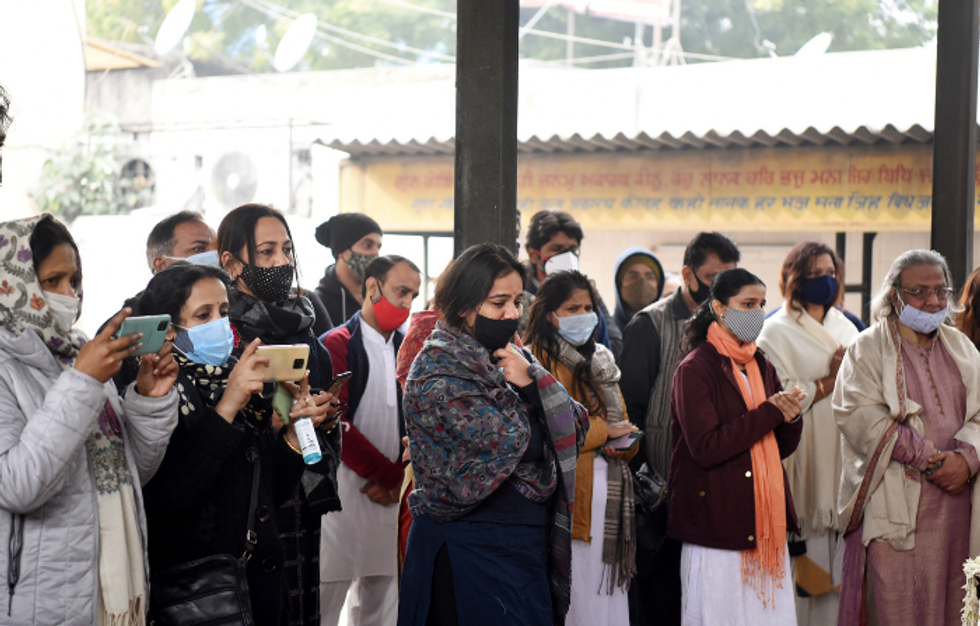RICH TRIBUTES have been paid to renowned Indian classical dancer Brijmohan Nath Mishra Maharaj, popularly known as Birju Maharaj, who died late last Sunday (16) night, his family said on Monday (17).
In a career spanning nearly six decades, Maharaj performed and taught Kathak, one of India's eight major classical dance forms, and was considered its foremost exponent in the country.
Maharaj, 83, was at his home in New Delhi with his disciples and family members when he felt uneasy and was rushed to hospital. He died before reaching the hospital, his grand-daughter, Ragini, said, adding that he was laughing and smiling in his last moments, as they were playing antakshari.

He had been suffering from a kidney ailment and received dialysis treatment in recent weeks.
Prime minister Narendra Modi condoled Maharaj's death. "His passing is an irreparable loss to the entire art world," Modi said in a tweet.
President Ram Nath Kovind said, “The demise of legendary Pandit Birju Maharaj marks the end of an era. It leaves a deep void in the Indian music and cultural space. He became an icon, making unparalleled contribution to popularise Kathak globally.”
Finance minister Nirmala Sitharaman described the artiste as a "legend of performing arts".

One of India's best known and most loved artistes, Birju Maharaj was from Lucknow's Kalka-Bindadin Gharana.
He was also a poet, writing under the pen-name 'Brijshyam' and a vocalist who had mastered thumri and other forms too, and also an instrumentalist. But it was Kathak which became his calling in life. He dedicated every waking minute to finetuning and popularising the craft in India and beyond its shores.
He recalled how he was just three when he would walk towards the “taleemkhana” where young students were taught dance skills, as well as the harmonium and the tabla.
It was those early growing up years at his ancestral home in Lucknow that gradually moulded the young Mishra into Birju Maharaj, the leader of Lucknow's Kalka-Bindadin Gharana. “It was like a sea of rhythm and beat, and for seven generations that was the only topic of discussion back home. Laya, swar, taal, bhangima, saundarya, aur nritya (rhythm, tone, beat, pose, beauty, and dance) that was all we talked about.
“All we heard was the sound of ghunghru, tabla, and harmonium. Everybody would start practising at 4 in the morning, I would also get there with some sweets in my pocket. Sometimes I would try my hand at a tabla or a harmonium, had started learning bit by bit from the very beginning,” he said.
Born in the house of Kathak exponent Jagannath Maharaj, better known as Acchan Maharaj, Birju Maharaj started performing from the age of seven.
He trained under his father and guru Acchan Maharaj and uncles Shambhu Maharaj and Lachhu Maharaj.
As a young child he accompanied his father to Kanpur, Allahabad and Gorakhpur in north India and also Kolkata and Mumbai, where he shared the stage with him.
When his father died, a young Birju Maharaj moved to Delhi and started teaching Kathak at the Sangeet Bharti to support his family. He was just 13 at the time.
He also taught at the Bharatiya Kala Kendra in Delhi, and at the Kathak Kendra (a unit of the prestigious Sangeet Natak Akademi) where he was head of faculty and director, retiring in 1998.
Birju Maharaj later opened his own dance school, Kalashram, also in Delhi.
His fame grew over the years and there was a time when Kathak, a form of dance that uses expressions and fluid movements to tell a 'katha' meaning 'story', became synonymous with Birju Maharaj.
In his last interview to the Press Trust of India, fewer than two months ago, the artiste spoke of his optimism for the future and the younger generation carrying forward the traditions of Kathak.
“Artistes who passionately work towards carrying the tradition forward are the right torchbearers of an art form and its legacy. It takes a lot of work and dedication to stay true to a mighty tradition such as classical dance,” he said. The artist was honoured with the Padma Vibhushan by the government of India.
Birju Maharaj choreographed pieces such as “Makhan Chori” and “Phaag Bahar”.
When he was in his 70s, he worked on full-length mythological and historical dance-dramas, including “Katha Raghunath Ki”, “Krishnayan” and as well as “Darbar-e-Salaami, Shaahi Mehfil”.
In his last years, he moved to abstract and rhythmic compositions such as “Laya Parikrama”, “Naad Gunjan” and “Ghunghru Sangeet".
There were some great film moments too.
In Satyajit Ray's masterpiece “Shatraj Ke Khiladi” in 1977, Birju Maharaj composed a dance, performed by a disciple, and sang the memorable “Kanha main tose haari”.
In a bit of interesting film history, the song was written by Bindadin Maharaj, Birju Maharaj's grandfather's brother who was a dancer and thumri exponent in the court of Nawab Wajid Ali Shah.
The two brothers went on to establish the Kakla-Bindadin Lucknow Gharana.
Birju Maharaj also trained actress Madhuri Dixit for the “Devdas” song “Kaahe chhede mohe” and Deepika Padukone for her song 'Mohe rang do laal' in "Bajirao Mastani".
Both films were directed by Sanjay Leela Bhansali.
As one of India's most recognised names in the classical firmament, the awards were many, including the Padma Vibhushan, the Sangeet Natak Akademi, Kalidas Samman, Nritya Vilas, Rajiv Gandhi Peace Award as well as a National Film Award for choreography in "Vishwaroopam" and a Filmfare Award for "Bajirao Mastani".
The house on Gwynne Road in Lucknow Birju Maharaj grew up in is now a Kathak museum. He also stayed connected to his ancestral village, Handiya Tehsil near Allahabad, which has a 'Kathakon ka Talab' (pond of Kathak dancers) and a 'Sati ka Chauraha', where his grandmother burned on a pyre with his grandfather.
Birju Maharaj is survived by five children, three daughters and two sons, and five grandchildren.
Singer Durga Jasraj, daughter of the late Pandit Jasraj, called Birju Maharaj's death "a monumental loss to Indian performing arts".
Composer Adnan Sami said, "We have lost an unparalleled institution in the field of the performing arts. He has influenced many generations through his genius."



















FBU chief raises concern over rise in racist online posts by union members